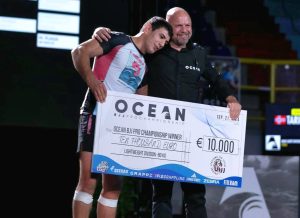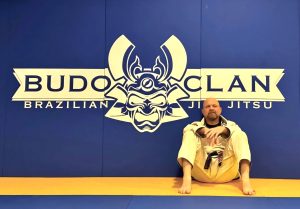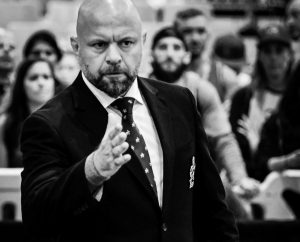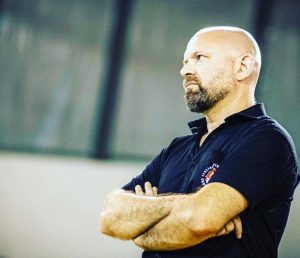A revealing conversation with black belt Dario Bacci, president of the Unione Italiana Jiu-Jitsu, the strong arm of the IBJJF in the land of the Coliseum, the man behind the acclaimed Ocean BJJ event.
How was your struggle, as well as the struggle of the Italian BJJ federation, to achieve official recognition of BJJ as a sport by the Italian state?
We have always been following the steps of IBJJF, collaborating and learning from the best and most authentic Brazilian Jiu-Jitsu organization in the world. We represent IBJJF in Italy since 2012. One of the primary requirements, in Italy, for an organization to be recognized is to be referred to an international federation that is acknowledged by the Int. Olympic Committee. IBJJF has a different status, so we have always missed the possibility to apply for a recognition. Lately in Italy things have changed, the political management of the sport has opened new possibilities, also our status has changed since, in 2022, we have been recognized by FIJLKAM, the Judo Wrestling and Karate Official Federation. Therefore, we have managed to break through this resistance and finally got the recognition from the Government and kept our relationship with IBJJF tighter than ever.
Practically speaking, what changes can we expect moving forward? What benefits will BJJ practitioners gain from this recognition?
We can say that now we formally exist. So, from being a movement of a lot of passionate practitioners, we have now the status of an organization with a strong legal structure inserted in a context recognized by the government and the Olympic Committee, with all the consequences that derive from it, including the possibilities of having funding and professional recognition.
You often say that “the fight is just beginning.” What are the next steps? What challenges lie ahead?
So many things have happened and keep happening and if we look back to few years ago, we can see how much has been done. We are working in the best venues in Italy, our referees’ team has improved a lot and now we are working with the assistance of the VAR system in all competition. We have gone up to 16 events per year. We have created the Jiu-Jitsu Expo, a festival of about 30 different stores selling and displaying product and services related to BJJ, along with different Teams booth and an area for free seminars with the best Professors around. This Jiu-Jitsu Expo happens during the Italian BJJ Open, at its 11th edition lasting 3 days with over 2000 athletes attending. We have launched a new exciting submission grappling event called Ocean, which has already been included in the most important streaming platform in the world: FloGrappling. Now the Italian Government recognition. Next steps would be even just consolidating what we have achieved so far. But for sure we will come up with some interesting news soon. Next steps would be even just consolidating what we have achieved so far. But for sure we will come up with some interesting news soon.

In addition to a strong federation, the growth of a sport often relies on the presence of great idols and major competitions. Who are currently the prominent Italian Jiu-Jitsu figures and what are the key competitions?
There’s a bunch of athletes that reported great results in national and international competitions. Luca Anacoreta keeps his reputation always very high everywhere he steps on the mat, Manuel Pilato has recently won the black belt adult division in the IBJJF Euro NOGI, Serena Gabrielli has won nearly everything she competed in, Alessandro Borgonovo is a newly promoted black belt from AOJ that has moved back to Italy, Nicola Castellano a very promising black belt, Fabio Pititto ranked first in the Master 1 and there are so many more ready to prove their ability, Matteo Parolin, Giulia Angiolini, Andrea Da Pozzo, Alessio Salis…
Today, BJJ is experiencing significant growth among children and women. While Italy has many practitioners, they seem to be more concentrated in the male/adult demographic. Is this the current profile of Italian practitioners?
There is a higher number of male practitioners indeed, but it is rapidly changing.
In the last Italian BJJ Open, the Italian official BJJ Championship, with 2000 athletes registered, we had 110 black belt and for the first time also some female black belts adult (the most prestigious division). Also, for the kids we are experiencing a remarkable increase: our last Junior Italia Open, the official Italian Junior Championship, reported about 500 kids!

What about Jiu-Jitsu academies? How robust is the BJJ academy market in Italy right now? Does the federation have an estimate of how many academies are currently operating in the country?
We presently have about 400 organizations registered, considering that many are structured as associations (composed of many branches) this means that we are counting on probably over 600/700. We also have a database of about 5000 athletes, but this number is increasing month after month.




